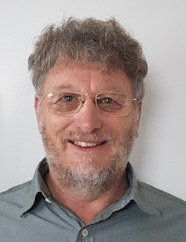
Todd Roughton.
Can you tell us a little bit about your experience with home education?
Ever since I commenced teacher training back in 1973, I have had a keen interest in alternative approaches, but like most people I guess, I always assumed that schools were as integral to education as oxygen is to air. However, while teaching in a Christian school some 20 years ago, I was shocked when a father came to me and said, “You make my life very difficult; my boy is turning to you rather than to me.”
As a Bible-believing Christian I realised at that moment that something was fundamentally wrong; surely I thought, my job should be to turn the heart of that young man to his father and the heart of that father to his son, and not to usurp that most precious of relationships.
This ultimately led me to the realisation that the only institution ever ordained by God for the raising and nurturing of a young person is the family and that schools are a relatively-modern, human invention. God ordains the family – families ordain schools. This is turn led to us making a u-turn as a family in 2002 and stepping out to homeschool our own four children, ranging in age at the time from six to 14. In order to support that lifestyle choice I gave up traditional teaching and worked at a variety of education-related activities. This included tutoring, writing and publishing educational material and working on various Government and MOE contracts at primary, secondary and tertiary levels while remaining mostly home-based.
How has this experience prepared you for your current role as principal of Home School New Zealand? What do you do in this role?
Prior to homeschooling I had moved into Christian education in the late eighties and subsequently worked in two pioneering situations which required curriculum writing and development, multi-level classroom management and then administration. Coupled with the later experience in the tertiary sector and the consequent interface with the workplace, the net result was experience in state, private, Christian and tertiary sectors from primary through to adult both within and without the traditional structures.
This has proven helpful as we now deal with students of all ages, and need to be able to communicate in an informed way with young people who are looking to craft viable outcomes to enter a wide assortment of fields.
What do you see as some potential benefits of a Year 13 home-educated student taking a theology paper via distance learning at the University of Otago?
From our point of view, it is encouraging for students to know that their high school education as a homeschooler can be drawn from a global set of options that even includes university papers. They are not bound by the set of conventions that normally typecasts people into a set mould or pathway simply by virtue of their age or location.
Beyond this, apart from the benefit gained by the actual course of study followed, Otago's offer enables young people to get a feel for the rigours of higher education.
Do you have any other advice for students or parents considering distance learning with the Theology Programme at the University of Otago?
Perhaps more so than any other area of study, your theology will lay the foundation understandings about the key questions in life: Who are we? Where did we come from? Where are we going? What is truth? What is the purpose of life?
Theology therefore needs to be handled carefully – as we grow we need to know what we believe and why as opposed to what we don't believe, and why.
Luke 6:40 tells us that we grow like our teachers, so we need to be sure that our teachers are on the correct page of the hymnal!
Our advice to parents is to first be sure that your young person is ready to be exposed to points of view that are well-reasoned and articulately and intelligently presented but which may have the potential to reshape their worldview, and then secondly, to work through any course of theology with your student and engage them in ongoing discussion.
